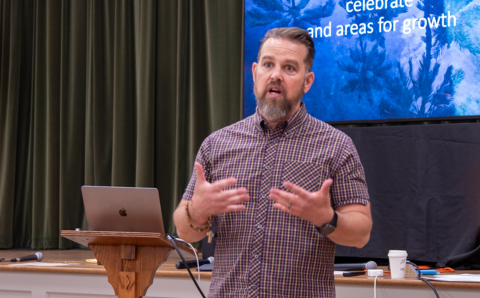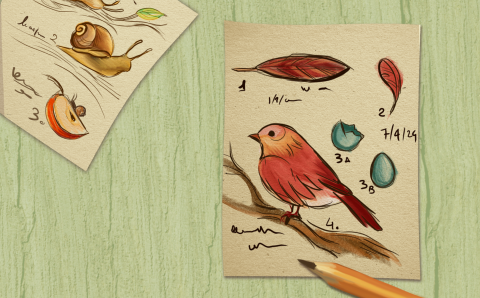I never considered myself to be a pessimistic person until I read this quote from author Nicole Zasowski: “Pessimism is a means of control as we attempt to take the element of surprise out of our grief.” I’d always thought I leaned toward the glass-half-full side; I didn’t know what I didn’t know.
The revelation that I was indeed pessimistic came on the heels of a life trauma. As I write this, my 49-year-old “baby” brother is in a coma in a Pittsburgh hospital three hours away. He had fallen, and the blood thinners he was on made the bleeding in his brain worse. He was flown to a local trauma center, where a surgeon removed the right side of his skull. Later that day he was flown to the more equipped hospital in Pittsburgh.
I was preparing myself the entire time for his death; the impending grief had begun. It was then that I happened upon the quote, and my world was rocked. Hello, my name is Tammy, and I am a practicing pessimist.
Six months ago I lost my mother to dementia and Parkinson’s disease. The year before that, my father died. I grieved for their deaths before they were gone too; I see that clearly now. It appears I’ve always lived waiting for the next bomb to drop.
Almost two years ago, my husband began a thyroid cancer journey in which I found myself imagining life without him. It wasn’t until I read the quote connecting pessimism to grief that I understood what I was doing—and why.
Self-preservation is a sneaky thing.
I understand now how much I catastrophize in the hopes that no pain, disappointment, or trauma will take me by surprise. It turns out dread carries a hefty price tag. There are losses, and then there are losses connected to those losses, and that’s a heavy burden to bear. Christ wants me to cast those cares upon him (1 Peter 5:7).
But if I’m busy preparing for the worst, I forfeit the present and the possibilities within it. My default has been to rehearse the potential pain as a means of lessening or controlling it instead of pressing into a hopeful imagination.
Ephesians 3:20 says that God “is able to do immeasurably more than all we ask or imagine, according to his power that is at work within us.”
Living hyper-aware of potential disappointment or pain isn’t genuine living. What if, instead of imagining the worst, I imagine the best—God’s best? Disappointment and pain might still come, but not always. I was imagining life without my husband, but he’s been declared cancer free.
Here’s the thing: My feelings might be real, but that doesn’t mean they’re true. When my husband received the cancer diagnosis, dread washed over me. I imagined myself a widow, and the grieving began right then and there. My feeling of dread was real, but it wasn’t true. Now I understand that I can feel a feeling but not allow it to control my life.
And that’s where I am today: allowing myself to feel the feelings, but not allowing them to consume me. I can fear the future, or I can live in the present moment, uncertain as it might be.
My goal is to put my pessimistic days behind me, to deal with life’s trials as they come in a way that allows for peace to coincide with uncertainty and for joy to be present with sorrow. Life is a beautiful mixture of good and hard, and I want to fully embrace every moment, trusting in God.
About the Author
Tammy Darling is the author of 1,600 published articles and three books. She writes from her home in rural Pennsylvania.









